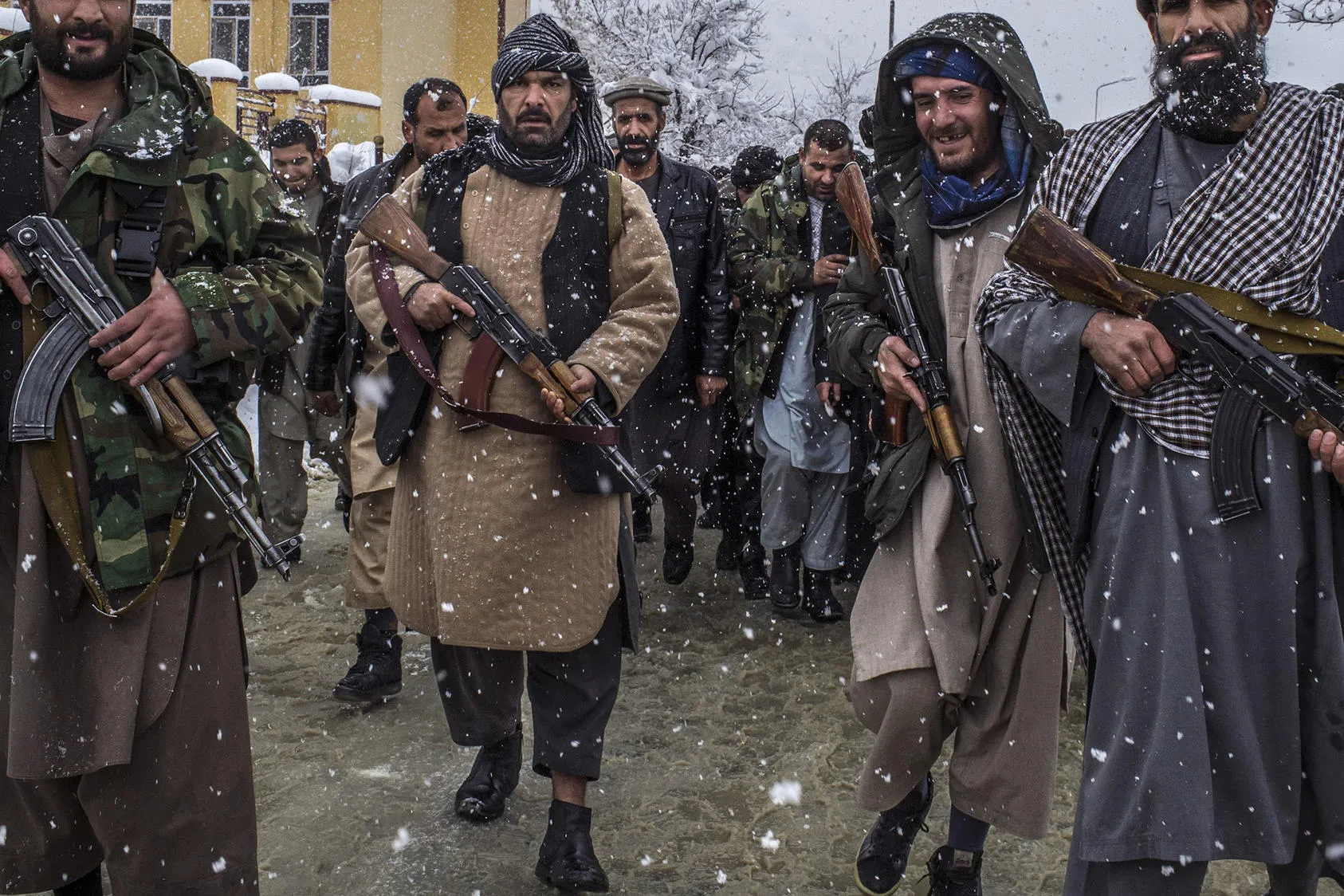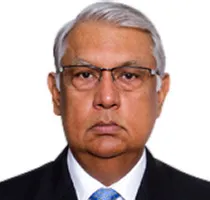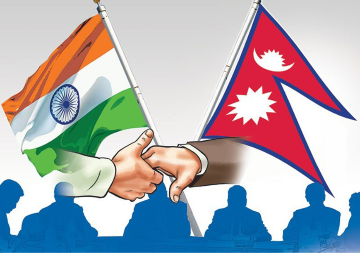The current situation in Afghanistan is fraught with uncertainty. The risk of another civil war is looming large. The Soviet Union’s army went into Afghanistan in 1979 to support a socialist-secular government. The Americans collaborated with Pakistan and other Islamic countries and created Al-Qaeda and the Mujahideens who launched a jihad against the Soviets. Pakistan’s contribution included the creation of the Taliban from among Afghan refugees who were indoctrinated, trained and armed for jihad to liberate their country from godless communists. The Soviets were forced into a humiliating retreat in 1989. Now, the Americans have decided to eat humble pie and exit Afghanistan after 20 years. Afghanistan’s reputation as the graveyard of empires stands refurbished.
The Al-Qaeda, hosted by the Taliban, had organised the 9/11 terrorist attacks on New York and Washington in 2001, triggering the American invasion of Afghanistan. Taliban leaders and foot soldiers fled to Pakistan, found refuge and started collaborating with Pakistan Army and ISI to destabilise the new government in Kabul. For the last 20 years, Pakistan has followed a policy of running with the hares and hunting with the hounds, milking the US for arms and money for providing supply line. Exploiting its geo-political position, as Afghanistan’s neighbour, it has used the Taliban as a tool to attack and kill Afghan and American soldiers. Pakistan’s ISI has embedded former and serving army personnel, jihadis from terrorist organisations like Lashkar-e-Taiba and Jaish-e-Muhammad in Taliban units for military operations.
Having spent around a trillion and a half dollars and suffered over 2,500 casualties, President Joe Biden has stuck to Trump’s policy of quitting Afghanistan, justifying his decision on war fatigue and the futility of spilling more American blood, financial drain and the hopeless task of nation building. By negotiating with the Taliban, the US has imparted legitimacy to a terrorist organisation. Talks between the US and the Taliban have not produced any peace plan that can be seen as sustainable. On July 1, the Americans handed over the Bagram military base to the Afghan military and slunk out of the country at night. This is America’s “Vietnam moment” when they left their Vietnamese allies to fend for themselves. The UK has joined the US to peddle the line that it will be able to work with a Taliban government, if it “behaves”. This has imparted further legitimacy to the Taliban.
Having spent around a trillion and a half dollars and suffered over 2,500 casualties, President Joe Biden has stuck to Trump’s policy of quitting Afghanistan, justifying his decision on war fatigue and the futility of spilling more American blood, financial drain and the hopeless task of nation building. By negotiating with the Taliban, the US has imparted legitimacy to a terrorist organisation
With Pakistan’s collaboration, the Taliban, encouraged by the impending American withdrawal and increased legitimacy, has mounted a renewed offensive and claim to have established control over 80% of the country’s territory. The Taliban have given ample evidence of their medieval mindset by decreeing that all men must grow beards and wear traditional dress. Women venturing outdoors, can do so only if accompanied by a male family member. They have issued orders to villages to prepare list of girls and widows who would be married to young Taliban fighters. Their bloodthirsty nature was demonstrated recently, when they killed Afghan Special Forces members when they were surrendering. Taliban has now offered a three-month ceasefire, if the Kabul government agrees to release another 7,000 Taliban prisoners and international sanctions on the Taliban are lifted. The tug of war continues as high-powered delegations from both sides are set to meet at Doha.
Though China, Russia, Iran and Pakistan may revel in subdued glee at the US’ humiliating plight, they may soon have to deal with an imploding Afghanistan. The Americans have dumped Afghanistan into the lap of regional powers. China’s view that the US is in terminal decline will be vindicated. Pakistan would be salivating about achieving its holy grail of having a Taliban government in Kabul and giving it “strategic depth”. American withdrawal has raised the stakes for regional powers, and there is a flurry of diplomatic activity. Each regional power has divergent interest in Afghanistan. The recent Dushanbe meeting of the Shanghai Cooperation Organisation (SCO) on Afghanistan has produced an anodyne statement
whose underlying message is that of uneasiness and uncertainty. While the SCO consensus is for a peaceful, negotiated political settlement, the increasing violence on the ground indicates that the Taliban will use force to dictate terms.
China, Iran, Pakistan and Russia are likely to sideline India’s interests. Pakistan will certainly push for minimal Indian presence in Afghanistan and with China’s financial clout attempt to integrate it into the BRI. A Taliban government will accommodate Pakistan’s interest out of gratitude but may baulk at agreeing to egregious anti-Indian demands. Pakistan’s home-grown terrorist outfits like the Tehreek-e-Taliban Pakistan (TTP) and like-minded Pashtuns linking up in Afghanistan can cause trouble. The TTP’s agenda is to build a Sharia-based country that will ultimately extend into India. China is concerned about jihadis creating problems in Xingjiang where the Uighurs are resisting Beijing’s heavy-handed oppression and the East Turkestan Independence Movement (ETIM) may again link up with Al-Qaeda and ISIS elements.
China, Iran, Pakistan and Russia are likely to sideline India’s interests. Pakistan will certainly push for minimal Indian presence in Afghanistan and with China’s financial clout attempt to integrate it into the BRI
Working with the SCO seems the only feasible option for India. New Delhi has already withdrawn Indian diplomats and officials from several consulates in Afghanistan, in view of the increased violence and Taliban advances towards provincial capitals. While India has maintained low-key contacts with the Taliban, it would have to engage the Taliban like other countries have done. This would not dilute support for the Kabul government. The Taliban has told India to remain neutral, as the end game unfolds. India’s interests lie in maintaining her equities and ensuring that terrorist groups are not permitted to link up in Afghanistan and export terrorism to India — an objective that will be on Pakistan’s agenda. India has consistently backed any Afghan-led settlement. If the Kabul government and Taliban agree to power sharing, it would be acceptable to India.
This commentary originally appeared in The New Indian Express
The views expressed above belong to the author(s). ORF research and analyses now available on Telegram! Click here to access our curated content — blogs, longforms and interviews.




 PREV
PREV


